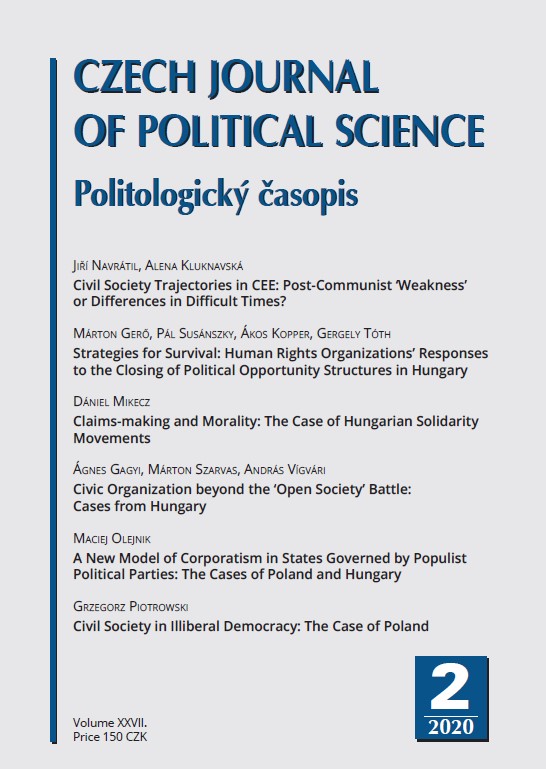A New Model of Corporatism in States Governed by Populist Political Parties: The Cases of Poland and Hungary
A New Model of Corporatism in States Governed by Populist Political Parties: The Cases of Poland and Hungary
Author(s): Maciej OlejnikSubject(s): Politics / Political Sciences, Social Sciences
Published by: Masarykova univerzita nakladatelství
Keywords: patronage corporatism; political exchange; Hungary; Poland; populist political parties; trade unions; employers’ organizations
Summary/Abstract: Between 1945 and 2010 three main types of corporatism were discussed in the political science literature: the ‘classic’ and ‘lean’ corporatism that existed in the West European countries and the ‘illusory’ corporatism that dominated in Central and Eastern Europe after 1989. The aim of the paper is to examine whether a new version of corporatism, which I call ‘patronage’ corporatism, emerged in Hungary and Poland during the first term of the governments formed by populist political parties (in Hungary between 2010 and 2014 and in Poland between 2015 and 2019). In patronage corporatism the authorities autonomously conduct heterodox economic policy. They enter into alliances only with ideologically close trade unions. While their cronies legitimize authorities’ decisions at the governmental level vis-à-vis the citizens and at the international level, the government fulfils some of their socio-economic and organizational demands. Furthermore, the government cooperates with its allies to destroy other trade unions that are perceived as hostile towards the authorities. The paper shows that the capture of power by populist parties in Hungary and Poland led to the development of patronage corporatism in these countries.
Journal: Politologický časopis - Czech Journal of Political Science
- Issue Year: XXVII/2020
- Issue No: 2
- Page Range: 178-195
- Page Count: 17
- Language: English

